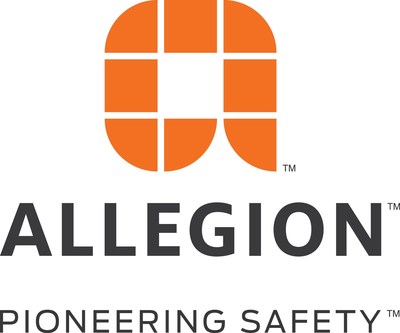Allegion 2022 Health Care Trends Report Uncovers How Facilities Are Using Technology to Meet the Demands of Patients and Staff
On April 5, 2022, Allegion U.S. released its 2022 Health Care Trends Report, detailing how COVID-19 reshaped security and safety measures in healthcare. The report derived insights from 100 decision-makers across major U.S. health systems. Key findings included that 88% of professionals noted infrastructure impacts from the pandemic, with substantial adoption of touchless technology and electronic access controls. Additionally, 55% of hospitals standardized their purchasing strategies, reflecting a shift towards enhanced patient safety and staff satisfaction.
- 88% of health care professionals noted COVID-19 impacted infrastructure needs.
- 73% increased security measures to protect people and property.
- 59% adopted touchless technology, with 62% utilizing access control.
- Adoption of antimicrobial products rose 170% since 2016, with 89% currently using them.
- 92% of facilities implemented electronic access control, a 13% increase from 2016.
- Over 80% of hospitals updated doors for ADA compliance.
- Cost (34%) and budget constraints (28%) remain major barriers to broader electronic access control adoption.
The pandemic accelerated the adoption of new strategies and security measures to limit the spread of infection while protecting people and property
CARMEL, Ind., April 5, 2022 /PRNewswire/ -- Today, Allegion U.S., a leading provider of security products and solutions, revealed the results of a health care survey that provides insight into trends and challenges of today's hospitals. This survey, "2022 Health Care Trends Report: A Study on How Health Care Facilities Are Using Technology to Meet the Demands of the Changing Landscape," includes input from 100 decision makers across leading U.S. health systems including Ascension Health, HCA Healthcare, John Hopkins Medicine and Kaiser Permanente.
Beyond PPE and touchless access control, the study unveiled how COVID-19 accelerated the adoption of new security and safety measures aimed at protecting people and physical assets. Many strategic initiatives around door hardware and access control have been adopted since, with more being planned for the coming months.
In 2016, Allegion conducted a similar study, providing a benchmark for recent developments around electronic access control adoption, which were on the rise before 2020. Over the last five years, electronic usage has evolved, and there are more accommodations for patients with disabilities and behavioral health conditions.
"Health care has long been a dynamic market as result of continuous advancements and new technologies on the medical front," said Connie Alexander, senior manager for primary research & insights. "Our research reveals that we are now witnessing unprecedented evolution in other aspects of health care environments, particularly relative to the safety and security of patients, property, and staff."
The key trends and challenges examined in the report are outlined below:
- Pandemic Impact—The last two years devasted the health care industry in many ways and profoundly altered how health care facilities operate.
88% of health care professionals cited at least one way that COVID-19 impacted their organization's infrastructure needs and plans73% added extra layers of security to limit the spread of infection while protecting people and property59% added touchless technology at openings and62% electrified openings with access control- Surface Transmission Strategies—While infection control has always been a top health care priority, COVID-19 forced facilities to adopt new solutions.
89% are using antimicrobial products in their facilities today, up a significant170% from 201661% are using hands-free or touchless access products more than before93% are using touchless or hands-free products throughout the building—from patient areas like individual rooms and the ICU to common spaces like restrooms and reception areas- Strategic Initiatives & Planning—Looking ahead, health care industry leaders expect to see security-related initiatives grow in the next 12 months.
55% of hospitals standardized purchasing of door hardware and access control products, up13% from five years ago40% plan to expand their security plans in the next year, including projects related to key control, credentialing and ligature resistance- Electronic Access Control Adoption—Adoption escalated throughout the health care market over the last five years, especially among larger facilities located in urban and suburban markets. Common areas with electronic door hardware in place include surgical suites, nurseries, behavioral health units and equipment rooms.
92% are using electronic access control to some extent,13% higher than in 2016- Of those using connected systems in their facilities,
82% are using hardwired electronic access control products, and71% are using wireless technologies - Health care professionals cite cost (
34% ) and lack of budgets (28% ) as primary barriers to widespread electronic access control adoption - Patient Accommodations—Facilities have become more accommodating for patients of all abilities and needs. The pandemic and an increased focus on mental health are cited as key drivers for these shifts.
- Over
80% of hospitals updated doors to meet ADA compliance over the last year - Changing door knobs to levers (
45% ) and adding automatic door operators (44% ) were the most common changes made in areas like patient rooms, common areas and restrooms 57% are experiencing an increase in patients requiring rooms with ligature resistant hardware—which is specifically designed to reduce the risk of strangulation—up7% from five years ago- Prioritizing Staff Satisfaction—Hospitals and other facilities appear to be valuing their employees and prioritizing staff satisfaction, which may be attributed to the impact COVID-19 had on this workforce.
- When asked how their organization measures effectiveness of hands-free and touchless products, the top response was improvement of staff satisfaction (
66% ) - At
60% , staff satisfaction was in the top three answers when asked a similar question about measuring the effectiveness of antimicrobials - Staff satisfaction was ranked number one for how respondents measure the effectiveness of quiet door hardware
Allegion works with health care facilities to provide flexible security and access control offerings that meet the demands of today's patients and staff. For more information, please visit allegion.com/hospital-trends. For further insight on key findings, register for Allegion's upcoming Security in 30 webinar, Healthcare Insights in a Rapidly Evolving Landscape, on April 15 at 12:30 p.m.
Data Source: Allegion. Survey of 100 key decision makers in U.S. hospitals (including C-suite, purchasing and procurement, facilities and operations, clinical and services lines, and safety and security); 30-minute blind survey; to qualify, decision makers had to have worked with, purchased or recommended one or more types of door hardware, access control or both in the past 12 months; conducted August through September 2021.
Allegion (NYSE: ALLE) is a global pioneer in seamless access, with leading brands like CISA®, Interflex®, LCN®, Schlage®, SimonsVoss® and Von Duprin®. Focusing on security around the door and adjacent areas, Allegion secures people and assets with a range of solutions for homes, businesses, schools and institutions. Allegion had
![]() View original content to download multimedia:https://www.prnewswire.com/news-releases/allegion-2022-health-care-trends-report-uncovers-how-facilities-are-using-technology-to-meet-the-demands-of-patients-and-staff-301517564.html
View original content to download multimedia:https://www.prnewswire.com/news-releases/allegion-2022-health-care-trends-report-uncovers-how-facilities-are-using-technology-to-meet-the-demands-of-patients-and-staff-301517564.html
SOURCE Allegion US
FAQ
What are the key findings from Allegion's 2022 Health Care Trends Report?
How has COVID-19 affected security measures in healthcare facilities according to Allegion?
What percentage of hospitals updated doors for ADA compliance in 2021?
What barriers does the healthcare sector face regarding electronic access control adoption?








